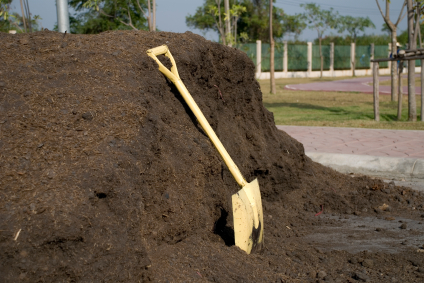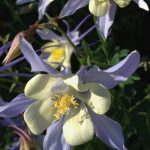In Processing Complex Emotions, Nature’s Original Recycling Project Shows Us the Path to Healing: Composting in our  gardens transforms organic material like grass clippings, food garbage and tree leaves into fertilizer. Transforming manure into fertilizer is nature’s original recycling project. Complex emotions need composting. First, we gather them together and pile them up in one place, like we do with compost or manure. Then, we mix them up, expose them to the air, sunshine, rain and then we leave them alone while we go on with our lives, before repeating the mixing process over and over again, until the compost or the manure stops stinking.
gardens transforms organic material like grass clippings, food garbage and tree leaves into fertilizer. Transforming manure into fertilizer is nature’s original recycling project. Complex emotions need composting. First, we gather them together and pile them up in one place, like we do with compost or manure. Then, we mix them up, expose them to the air, sunshine, rain and then we leave them alone while we go on with our lives, before repeating the mixing process over and over again, until the compost or the manure stops stinking.
It takes seasons to transform clippings into compost or manure into fertilizer. It takes seasons to transform complex emotions into positively meaningful growth. If we leave a manure pile undisturbed, or ignore a composter, the passage of time does not produce fertilizer. Part of it will compost and part of it stays a stinky mess. In large commercial composters, neglecting to mix the compost can actually cause an explosion.

Similarly, the passage of time alone does not transform our complex emotions. It takes telling our difficult, painful stories enough times, in enough different ways to reach our hearts and metamorphose the meaning of our stories. It is the transformation of the meaning of our tough times, our hurts and injuries that brings healing to our minds, bodies, souls and spirits.
The idea that awful circumstances in our lives can be the catalyst for great good in our lives can be alien or even offensive when we’re in the midst of trouble. What an absurd idea: when we’re in the midst of trouble and adversity–loss, illness or tragedy—that these circumstances can be a catalyst for great good in our lives. Yet it’s a widely held idea.
Napoleon Hill’s famous saying is “In every adversity is the seed of equal or greater benefit.” Long before that, Saint Paul said, “We know that God will make everything that happens to us come out to our eventual good, as long as we trust Him and remain true to the purpose for which He called us.”
That all sounds nice. But HOW do we access this seed of greater benefit? HOW do we hang in there until the “eventual good” comes? How do we tap into it? In discovering Creative and Contemplative Handwork, I stumbled upon a tool that can provide both the means and the pathway of transforming life’s scraps into something not only beneficial, but sometimes even beautiful. As we take literal scraps that represent the things that ‘stink’ in our lives, and make something tangible with them, our psyche takes our Life Scraps and simultaneously transforms them into something beneficial and yes, even beautiful.
the “eventual good” comes? How do we tap into it? In discovering Creative and Contemplative Handwork, I stumbled upon a tool that can provide both the means and the pathway of transforming life’s scraps into something not only beneficial, but sometimes even beautiful. As we take literal scraps that represent the things that ‘stink’ in our lives, and make something tangible with them, our psyche takes our Life Scraps and simultaneously transforms them into something beneficial and yes, even beautiful.
 How do we know that the transformation process is complete? It’s simple. First of all, transformation is never TOTALLY and FINALLY complete. Given that, composting and making fertilizer from manure are both complete when the organic material no longer stinks. When the stink is gone from our stories, when they no longer feel toxic when we tell them, when hurt no longer wells up within us when that spot is touched, and most importantly, when their significance and meaning has positively changed, then our fertilizer is ready to be spread in the garden or on the larger fields of our lives.
How do we know that the transformation process is complete? It’s simple. First of all, transformation is never TOTALLY and FINALLY complete. Given that, composting and making fertilizer from manure are both complete when the organic material no longer stinks. When the stink is gone from our stories, when they no longer feel toxic when we tell them, when hurt no longer wells up within us when that spot is touched, and most importantly, when their significance and meaning has positively changed, then our fertilizer is ready to be spread in the garden or on the larger fields of our lives.
It is through understanding this process of inner transformation through composting that can we understand and experience the deep truth of Napoleon Hill’s assertion: “In every adversity is the seed of equal or greater benefit” and Saint Paul’s declaration: “All things work together for good to them that love God, and are called according to his purpose.”
Scrap Lady Sharon Barnes

